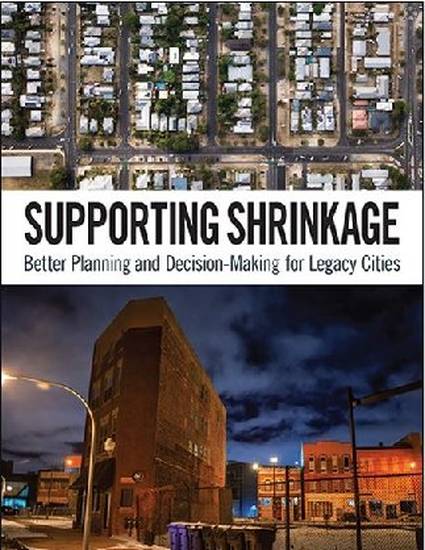
Book
Supporting Shrinkage: Planning and Decision-Making for Legacy Cities
(2021)
Abstract
Planning and policy design for shrinking and distressed regions is challenging. Traditionally, planners use a variety of tools and incentives to encourage land uses that accommodate changes in populations, infrastructure and activities to maximize quality of life and social and environmental sustainability. These are generally designed for growing cities and politically and socially active communities. Since many regions face significant disparities in social supports, financial resources and quality of life, use of these tools is thus problematic.
Information technology and the Internet have transformed the production of goods and services. The ‘big data’, ‘smart cities’ and ‘e-government’ movements make it possible for cities to provide more, higher-quality and more-responsive services to residents, for companies to provide customized and lower-cost products to customers, and for residents to engage with other residents, social institutions and companies in ways unimaginable just twenty years ago. These benefits are not distributed equally across communities, however.
In an era of ever-cheaper, more-mobile and more responsive technologies, residents in traditionally underserved and distressed communities continue to lack avenues to social and economic progress and seek an active voice in determining the future of their neighborhoods, especially through new and nontraditional land uses. Structural barriers to opportunity, across education, transportation, housing, employment and social supports constitute special challenges to community stabilization and revitalization.
In this book, we describe a new approach to citizen-engaged, community-focused planning methods and technologies for cities and regions facing decline, disinvestment, shrinkage and social and physical distress. We explore a wide range of approaches, such as collaborative planning, social media, civic technology, game design, analytics, decision modeling and decision support and spatial analysis, with a focus on issues of social justice, democratization of knowledge and local empowerment.
This book will be published by SUNY Press in July 2021. The document available for download here includes the cover, front matter and Chapter 1 ("Planning, Technology and Shrinking Cities") of the galley proof as of June 24, 2021. The SUNY Press book description and order details are at https://www.sunypress.edu/p-7052-supporting-shrinkage.aspx.
Keywords
- shrinking cities,
- public participatory GIS,
- big data,
- smart cities,
- management science
Disciplines
Publication Date
July 30, 2021
Editor
Michael Rinella
Publisher
In production at SUNY Press
ISBN
978-1-4384-8345-0
Citation Information
Michael P Johnson, Justin B Hollander, Eliza W Kinsey, George Chichirau, et al.. Supporting Shrinkage: Planning and Decision-Making for Legacy Cities. 1Albany, NY(2021) p. i - 264 Available at: http://works.bepress.com/michael_johnson/108/
